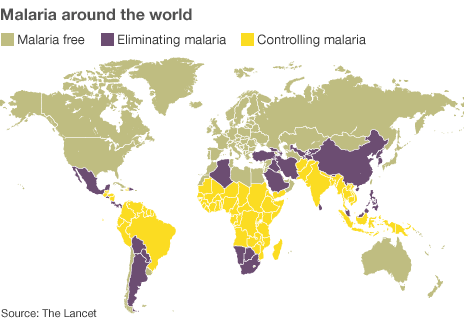Malaria unbeatable, just control it, say experts
By Sharon S. Tibenda
1st Nov 2010
The world should revise its ambitions and abandon efforts to eradicate malaria and concentrate on controlling it instead, malaria researchers have said.
Writing in The Lancet, a leading medical journal, the researchers said some countries, particularly those in sub-Saharan Africa, may be better off pursuing a policy of controlling the disease. Trying to eradicate malaria, the researchers said, may be counter-productive in some countries.
The researchers included Professor Richard Feacham from the University of California’s Global Health Group and others from the Clinton Health Access Initiative. They also criticised the World Health Organization (WHO) for not providing adequate policy direction to guide the fight against malaria.
The researchers looked at the feasibility of eradicating malaria from the world map in the same way smallpox was conquered. They pointed out that the Bill & Melinda Gates Foundation had set the world a very high and unrealistic target in 2007 which was endorsed by the WHO’s Director-General Margaret Chan.
The Lancet researchers concluded that such a goal, while noble, “…could lead to dangerous swings in funding and political commitment”. They accused WHO of failing “…to rise to their responsibilities to give the malaria community essential direction”.
According to the researchers, the only pragmatic approach would be to direct efforts and resources into trying to shrink the global area where malaria still prevails.
The Lancet’s Editor-in-Chief Dr. Richard Horton and Executive Editor Dr. Pamela Das also argued in the accompanying editorial that control may save more lives.
“…If existing control efforts were indeed scaled up by 2015, 1.14 million children’s lives could be saved in sub-Saharan Africa alone. This finding is important. The quest for elimination must not distract good malaria control work”, they said. In their view, “…malaria will only be truly eradicable when an effective vaccine is fully available”.
Responding to the report in a statement, Robert Newman, Director of WHO’s Global Malaria Programme however insisted that beating malaria must remain the ultimate goal. “…WHO has always supported – and will always continue to support – endemic countries in their efforts to control and eliminate malaria”.
He added that it was entirely feasible to eliminate malaria from countries and regions where the intensity of transmission is low to moderate and where health systems are strong. “…Eliminating malaria from countries where the intensity of transmission is high and stable, such as in tropical Africa will require more potent tools and stronger health systems than are available today”, Mr. Newman said.
Malaria is caused by five species of a parasite that can be carried from human to human by mosquitoes. Malaria is still endemic in 99 countries including Uganda. END. Please log into www.ugandacorrespondent.com every Monday to read our top stories and anytime mid-week for our news updates.
![]()


